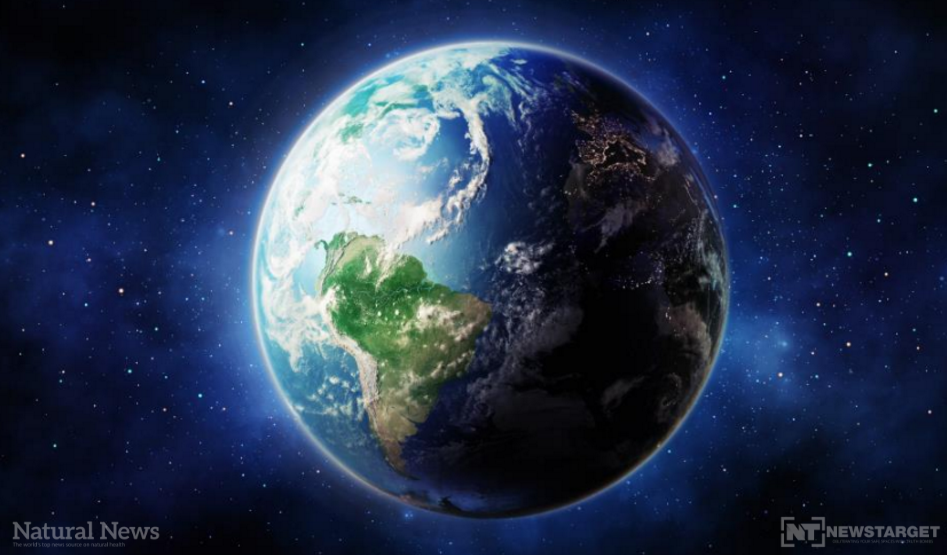IMPRACTICAL: Earth’s total land area still not enough for carbon capturing systems: Report
08/13/2021 / By Ramon Tomey

Companies have touted carbon offsetting through tree planting as a solution to climate change. However, critics have slammed it as it only allows companies to carry on with their polluting activities. Now, a new report has stated that these carbon-capturing systems are false solutions and that implementing them will deprive the world of much-needed farmland.
Nonprofit organization Oxfam released a report saying that carbon offsetting techniques would call for huge amounts of land. The report, released this August, noted that the “total amount of land required for planned carbon removal could potentially be … the equivalent of all the farmland on the planet.”
Oxfam estimates that 1.62 billion hectares of land are needed to offset the planet’s carbon emissions. This surpasses the 1.5 billion hectares of available cropland around the world. Using this much land for carbon offsetting will lead to food security issues.
“Increased competition for land could lead to higher food prices and a larger population at risk of hunger,” Oxfam wrote in its report. It warned that allocating cropland for carbon capture efforts “could increase food prices by about 80 percent in 2050,” hitting millions in vulnerable communities.
The group also noted that seemingly well-intentioned tree-planting endeavors often cause more harm than good. These degrade the land further, worsen water scarcity and make it difficult for small farmers to farm their land, Oxfam pointed out.
“The only proven way to remove carbon from the atmosphere is … by growing billions of trees and storing carbon in trees and soil. [But] it is mathematically impossible to plant enough trees to meet the combined net zero targets announced by governments and corporations, as there is simply not enough land to do this,” the report said. (Related: Scientists warn CO2 and global warming “biggest misdirection” in scientific history.)
Never mind people’s hunger as long as carbon emissions hit zero
In its report, Oxfam examined the net zero targets of four giant oil companies – Shell, British Petroleum, Total and Eni. The report said that even with conservative estimates, the four companies’ plans to offset carbon emissions could require land twice the size of the U.K.
Oxfam estimated that the four firms will need between 21.7 million and 27.8 million hectares by 2030 for planting trees to offset their emissions. It furthermore added that this demand will grow to between 50.4 million and 69.4 million hectares by 2050 – double the U.K.’s land area.
The report remarked: “If all energy companies were to set similar net zero targets by 2050, … [it] would end up using 500 million hectares of land by 2050.” That land area requirement was roughly equivalent to half the size of the entire U.S., it noted. (Related: Report: China is a bigger air pollution contributor than all developed nations combined.)
Oxfam Climate Change Policy Lead Nafkote Dabi told the Guardian: “Many countries and companies are talking about afforestation and reforestation, and the first question is: Where is this land going to come from? Hundreds of millions of people around the world are going hungry.” She suggested that different countries, companies and business sectors reduce their emissions first before focusing on offsetting.
“Too many companies and governments are hiding behind the smokescreen of ‘net zero [emissions]’ to continue dirty business-as-usual activities,” Oxfam Great Britain CEO Danny Sriskandarajah told the paper, He cited oil and gas companies justifying their ongoing extraction of fossil fuel through promises of “unrealistic carbon removal schemes” the call for “ludicrous amounts of land.”
Ultimately, planting many trees on large tracts of land to offset supposed carbon emissions at the cost of cropland only served as “a nonsensical solution.” People’s hunger appeares to be a lesser priority, with the reduction of carbon taking precedence over it.
ClimateAlarmism.news has more articles about sacrificing croplands in the name of reducing carbon emissions.
Sources include:
Tagged Under: carbon capture and storage, carbon offset, climate change, cropland, deception, food security, food shortage, oil companies, Oxfam, Tree Planting, zero emissions
RECENT NEWS & ARTICLES
COPYRIGHT © 2017 REAL SCIENCE NEWS





















